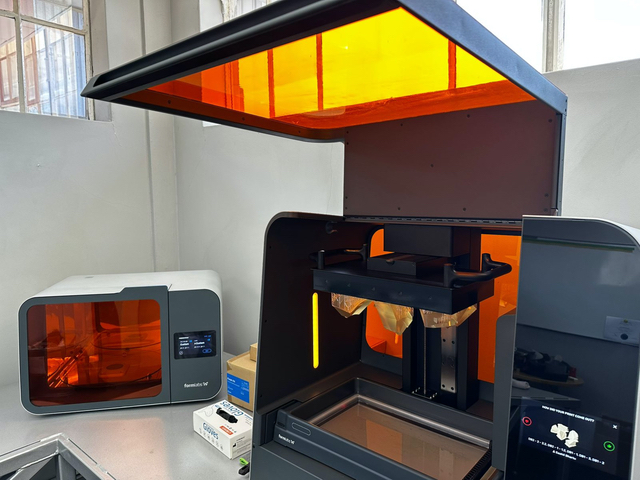Global multidisciplinary engineering business UMP is one of the few companies in South Africa offering professional 3D industrial printing. From receiving an initial enquiry to proposing a solution, making the necessary moulds and manufacturing the product, the company is a one-stop shop for turnkey solutions, says UMP Product Engineer Saahil Bhartu.
It decided to launch its 3D printing service about three-and-a-half years ago when involved with a complex hydrocyclone project. “We found that the cost of a one-off steel mould was so prohibitive that 3D printing was the only solution,” says Bhartu. UMP acquired its first fused deposition modelling (FDM) printer and has since not looked back.
“Once we committed to this initial project, it just grew to incorporate even more projects, which has given us a price competitive edge in the market,” says Bhartu. UMP’s 3D printing service covers design and manufacturing, with clients approaching the company with bespoke requirements. “We carry out the design, make the moulds, manufacture the product and then ensure it is delivered to the client within the specified timeframe.”
The addition of 3D printing has significantly expanded UMP’s mould manufacturing capability, adds Bhartu. “It gives our customers a different option that is inherently more cost-effective. In terms of turnaround time, it is much faster than CNC machining or traditional manufacturing methods. We simply design, analyse, print, and we have our parts. Depending on the size of the component, 3D printing is on average 30% to 40% faster.”
Such has been the success that UMP has established itself as the leader in industrial 3D printing in South Africa. This year it acquired a stereolithography (SLA) printer, which together with FDM are the two main 3D printing processes.
FDM works with a range of materials from basic prototyping materials to high-end engineering grade composite materials. The technique is ideal for basic proof-of-concept models and quick and low-cost prototyping. On the other hand, SLA uses liquid resin to produces high-resolution parts with smooth surface finishes and fine details which is sometimes difficult to achieve with FDM.
“It represents a huge investment, but we are happy with the outcome as it provides a major cost-saving and alternative for us and our clients,” says Bhartu. The next step is to move beyond mould making into final product design and even more complex parts.
“We want to get our name out there as a leader in industrial 3D printing as many of our clients do not realise it is a significant capability we have built up over the years,” concludes Bhartu.
Follow African Insider on Facebook, Twitter and Instagram
Picture: Supplied
For more African news, visit Africaninsider.com


